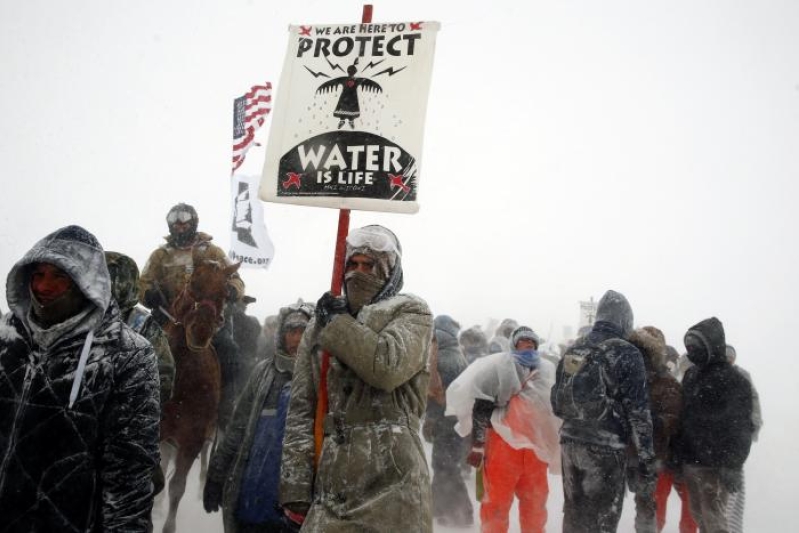
Perhaps the greatest recent controversy since the Trump election involves the Dakota Access Pipeline case. A reportedly 60% is presently completed and, while a Trump Administration anticipates its completion, others---such as Obama, and the Standing Rock Sioux---express distaste for an action they perceive to be a potential hindrance to the tribe's "public health and welfare, water supply and cultural resources." The tiny protest, which began as a local collaboration of 100 followers, has considerably enlarged; now called the Sacred Stone Camp, filed a lawsuit in July against the U.S. Army Corps of Engineers, pleading thus:
"First, the pipeline would pass under the Missouri River (at Lake Oahe) just a half a mile upstream of the Tribe's reservation boundary, where a spill would be culturally and economically catastrophic. Second, the pipeline would pass through areas of great cultural significance, such as sacred sites and burials that federal law seeks to protect."
The Army issued a prompt response by leading their initial channeling route away from any regions of a particular concern about contaminated water:
"The Army will not authorize constructing the Dakota Access pipeline on Corps land bordering or under Lake Oahe until it can determine whether it will need to reconsider any of its previous decisions regarding the Lake Oahe site under the National Environmental Policy Act (NEPA) or other federal laws."
The pipeline will span at 1,172 miles and extend from Bakken and Three Forks, North Dakota to Pakota, Illinois. Benefits, moreover, allegedly include greater independence in supplying domestic crude oil, safer channeling, and rouse economic growth by providing 8,000-12,000 new labor jobs during construction. Whatever your view on the subject, it would seem clear that the benefits are of a national caliber. According to Dakota Access Pipeline Facts, the controversial construction "...will enable domestically produced light sweet crude oil from North Dakota to reach major refining markets in a more direct, cost-effective, safer and environmentally responsible manner."
Jason Miller, a spokesman for President-Elect Donald Trump, remarks with a finality which foreshadows a direction, should the pipeline surpass its 2016 deadline----in appearance, an almost-undeniable probability.
"With regard to the Dakota Access Pipeline, that's something that we support construction of and we'll review the full situation when we're in the White House and make the appropriate determination at that time," said Jason Miller, a spokesman for Mr. Trump.






